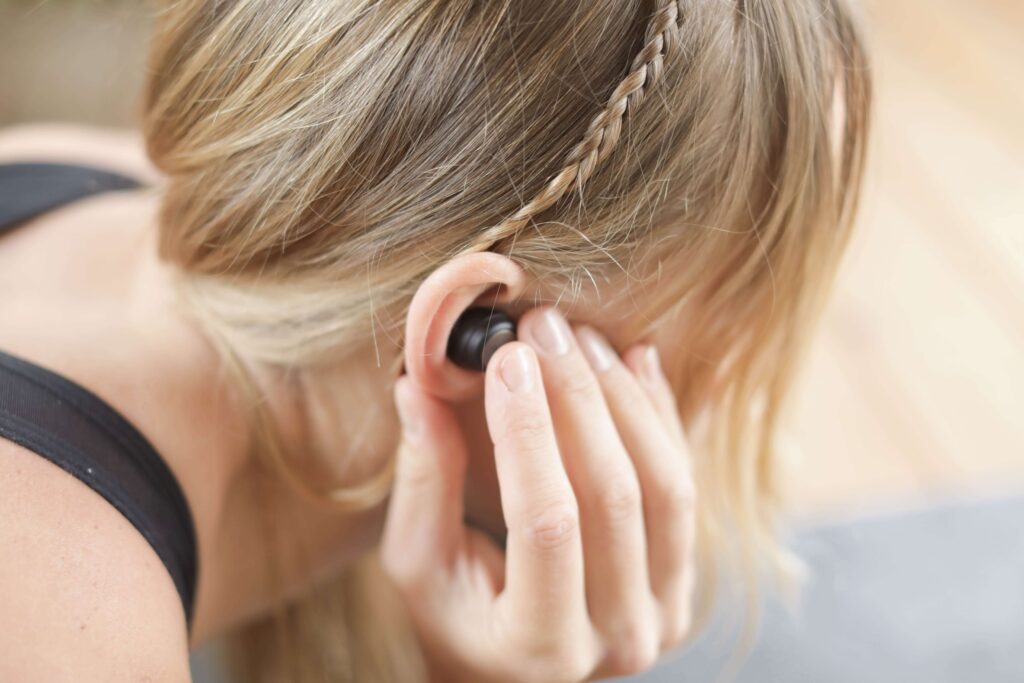At RF Exposure Lab, we pride ourselves on our expertise regarding SAR testing requirements. We know that the process of proving SAR compliance can be a long and complicated process, made more difficult if manufacturers choose to work with testing labs that lack expertise.
In this article, we’ll be taking a high-level look at SAR testing requirements and how working with an expert testing lab can help you get through these processes with ease.
The Basics of SAR Testing
Exposure to RF energy, or radiofrequency energy, can potentially damage human body tissues. Because of this, all devices that require RF energy must be evaluated to ensure that they’re safe to use. This evaluation is done through SAR testing.
SAR stands for Specific Absorption Rate and it’s a measurement of the amount of RF energy the human body absorbs when a wireless device is used. According to FCC SAR testing requirements, testing must be completed on any wireless device with parts that radiated RF energy that will be used within 20 cm (about 8 inches) of a human body.
With regard to how devices are installed and used, the FCC has three classifications for products: fixed, mobile and portable.
- Fixed products: these products are permanently attached to a structure and cannot be easily moved.
- Mobile products: products that can easily be moved from one place to another and will likely be used in close proximity to the body, but further than 20 cm.
- Portable products: similar to mobile products, but portable products are used within 20 cm of the body.
In addition to this, SAR testing requirements differ between wireless devices as well. As you can see, all of these differences in requirements can make the SAR testing process fairly complicated. Working with a testing lab that lacks SAR testing expertise can prolong the process of proving compliance or lead to your device failing to prove compliance.
Global SAR Testing Requirements
SAR testing requirements differ depending on the country where the device will be sold. For example, in Europe, devices that operate at 20 mW or higher must undergo SAR testing. In the USA and Canada, whether or not a device will need to undergo SAR testing is determined by the distance between the device and the user, the device’s power, and the frequency in which it operates. Other countries have SAR testing requirements that differ from this as well.
As a manufacturer of wireless products that require the use of RF energy, you must also keep in mind that rules and regulations are often being updated in all countries where these devices are manufactured and sold. Keeping up with updates in all countries your products are sold in requires a significant amount of time and effort. Working with a testing lab that you know has expertise in worldwide SAR regulations will ensure that this is being done for you, so all you have to focus on is manufacturing your product.
At RF Exposure, we’re well versed in worldwide SAR regulations and we always stay up to date with global requirements. Whether you aim to sell your product in North America, Australia, Europe, Asia, or any other country that is a member of the International Electrotechnical Commission (IEC), we can get you through the process quickly and smoothly.


Does Your Device Require SAR Testing?
It’s important to know whether or not your device will require SAR testing as early as possible in the manufacturing process. Not knowing this could mean that the design of your product may impact SAR testing results, requiring redesigns and increased time spent on the project.
Some testing labs, such as RF Exposure Lab, will work with you through the design process. Using our expert knowledge of SAR testing requirements, we’ll ensure that the design of your product won’t impact SAR testing in any way. This will help you avoid expensive redesigns and reduce the amount of time spend on manufacturing the product.
RF Exposure Lab – Experts in SAR Testing Requirements
RF Exposure Lab’s expertise comes from our Lead Technical Engineer, Jay Moulton. With a background in manufacturing and the regulatory side of SAR testing, Jay Moulton has more than 25 years of experience with SAR. He is unique in his ability, experience, and knowledge of SAR and was even asked to be involved in the 1996 IEEE World Wide Committee that wrote the SAR testing and methodology used to establish the FCC’s requirements used today. This distinctive expertise and knowledge is what allows us to guarantee our clients accurate SAR testing results and solutions.
In addition to this, we always go above and beyond to make sure our clients understand what we do and assist them in understanding how SAR testing standards will affect the testing that needs to be done for your device. We strive to be as communicative and transparent as possible throughout the SAR testing process so you always know what’s going on with your product and are never left in the dark.
RF Exposure Lab offers SAR testing services for a multitude of wireless devices including cell phones, laptops and tablets, medical products, survey equipment, wireless modems, and much more. If you’re looking for SAR testing help that is provided with expertise, speed, accuracy, and integrity, contact us to get a quote for our services.
